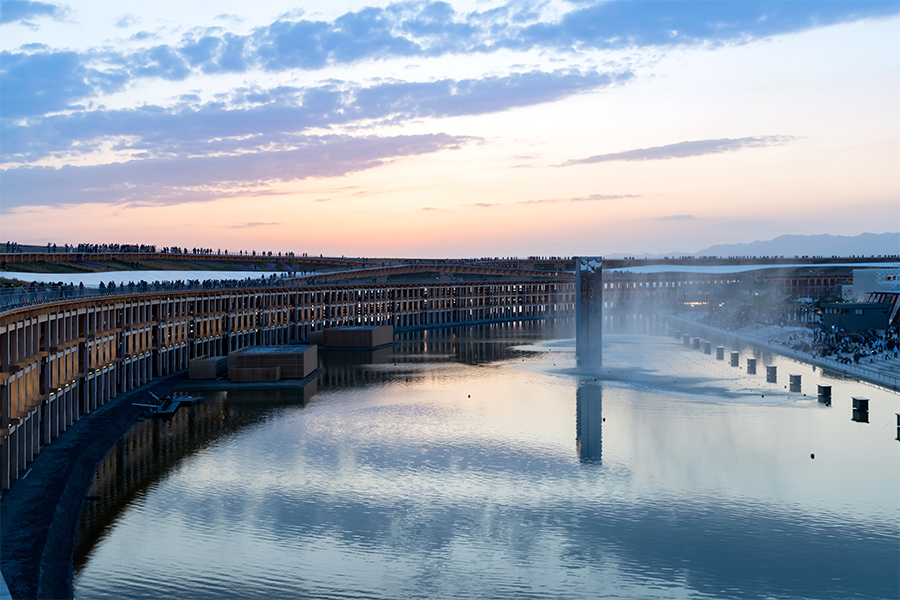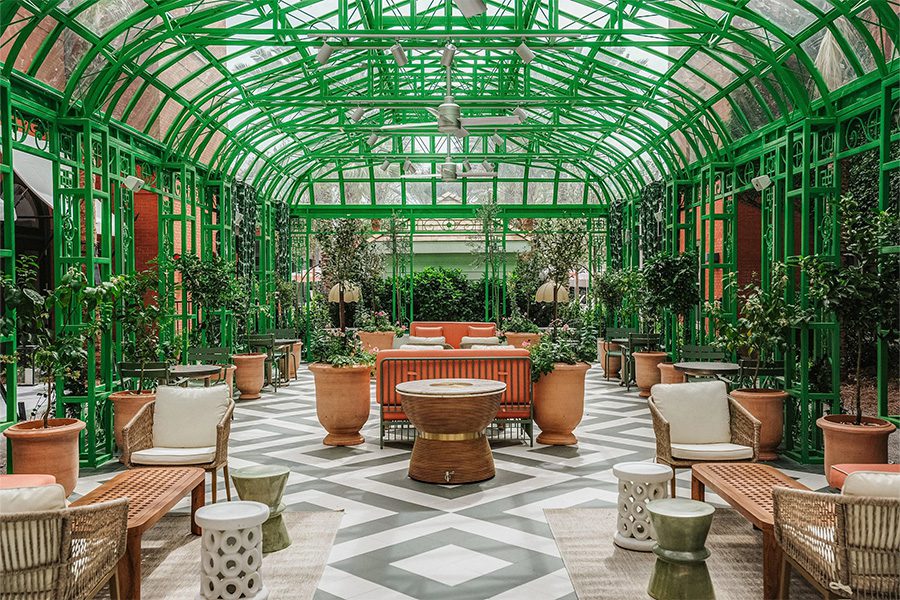Biden revamps the Commission on Fine Arts, Zaha Hadid Architects makes its mark at the Venice Architecture Biennale, and the reality of vaccine passports. All that and more in this week’s Five on Friday.
The race to develop a vaccine passport is on

Photo by Sammy-Williams/Pixabay
As restrictions ease and traveler confidence rises, many nations and organizations—including the European Union, some Asian governments, and the airline industry—are making a mad dash to create COVID-19 vaccine passports in order to get international travel back up and running, reports USA Today. “The idea is that travelers will flash a QR code on their phones so it can be scanned at, say, an airport or train station, using an official verification app that checks with national databases, via an EU technical ‘gateway,’” writes Kelvin Chan. Though many are happy to embrace this new technology, concerns about authenticity and privacy have arisen, not to mention accessibility, as a smartphone would be required to access the app.
President Biden takes a stance on architecture

The United States Capitol building; photo by MotionStudios/Pixabay
On Tuesday, President Biden announced his plan to appoint four new members to the Commission on Fine Arts, which oversees the design and renovation of federal buildings in Washington, DC. According to Fast Company, the move ends the Trump administration’s executive order to mandate the use of Roman and Greek-style neoclassical architecture. Although Biden officially revoked that order in February, the new appointees dramatically shift and diversify the commission, which was first established in 1910. Biden’s appointees are architect Peter D. Cook of HGA Architects, Howard University urban planning professor Hazel Ruth Edwards, former executive director of New York City’s Public Design Commission Justin Garrett Moore, and architect Billie Tsien, whose firm designed the Obama Presidential Center in Chicago.
Zaha Hadid Architects’ latest installation sustainably fosters collaboration

Photo by Alessandra Chemollo
As anticipated, there’s much to see at the 17th annual Venice Architecture Biennale, including Zaha Hadid Architects’ High-performing Urban Ecologies installation at the Alessandro Melis-curated Italian Pavilion. The design responds to the pavilion’s “Resilient Communities” theme, and simultaneously presents the firm’s masterplan for Unicorn Island, which is currently being constructed in Chengdu, China. The installation comprises the Alis pod, which addresses the needs of contemporary meeting areas, and combines “architecture, engineering, and urbanism to develop low carbon solutions that conserve energy and resources,” the firm describes. The installation is on view through November 21st, 2021.
How big businesses can do their part to support COVID-19 recovery

As part of Newark Working Kitchens, chef Marcus Samuelsson’s Marcus B&P restaurant serves meals to the local community; photo courtesy of @marcusbpnewark
A recent piece by chef Marcus Samuelsson and Audible founder Don Katz published by Fortune describes how the onus to help support and uplift small businesses, their employees, and those struggling can’t simply be put on local customers, and that the government’s $26.8 billion Restaurants Act can only do so much. Instead, they argue, it’s time for big businesses to step up. In April, they banded together to launch Newark Working Kitchens (NWK) and believe the New Jersey-based nonprofit’s model is one that can be applied to any city with corporate anchors willing to make an investment (the audiobook maker is headquartered in Newark). “We urge private sector decision-makers and government officials to consider how programs like these can sustain jobs, businesses, and lives in their own communities,” Samuelsson and Katz write.
Add this to your Memorial Day Weekend listening queue

Photo by Alex Filz
The latest episode of HD’s What I’ve Learned podcast is available just in time for the long weekend. Whether you’re taking a road trip or staying local, tune in to hear from architect and Network of Architecture (noa*) cofounder Lukas Rungger. The conversation with Hospitality Design editor in chief Stacy Shoemaker Rauen spans early influences, managing his Italian-based firm (which recently expanded with a Berlin office) with fellow cofounder Stefan Rier, and why sustainability has always been engrained in their projects. “The region where we grew up is not so much talking about sustainability, and you know why? Because it’s an everyday thing—It’s normal,” says Rungger. “Everybody here has always been mindful, for example, to create a building with timber.” Listen to the full episode wherever you get your podcasts.
More from HD:
The 36 Most Anticipated Hotel Openings of 2021
Furniture Designer BOA Makes Sustainability Her Mission
4 Beautiful Salons Elevate the Self-Care Experience



